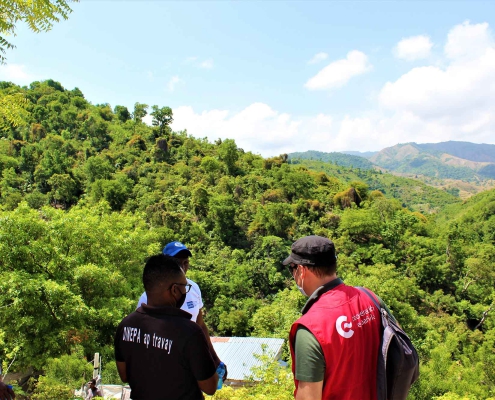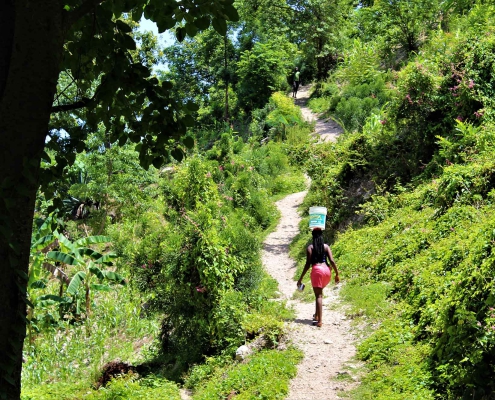OTHER PROGRAMMES ASSOCIATED WITH THE FUND

In addition to the initiatives directly funded through the Fund, another project managed by the Spanish Cooperation with European Union funding is underway in Haiti. The programme is the URBAYITI Delegated Cooperation Programme: Water and Sanitation (HTI-URBAYITI), which has a total of 4 million euros in funding, of which one million is donated by Spain, within the framework of the Water Fund Programme, and three million corresponds to funds delegated by the EU.
This action aims to further improve access to basic services in the cities of Port-au-Prince, Jérémie and Les Cayes. It is expected that 7,350 people will benefit from new access to drinking water and approximately 2,000 from new access to sanitation. In addition, the intervention includes planning and rehabilitation works and construction of sanitary blocks in collective facilities (schools, markets, health centres and others).
In addition, the intervention has an important social component, aimed at the participation of the programme’s beneficiary population. For this reason, communication and dissemination actions have been carried out for the programme, as well as numerous meetings with local agents, neighbourhood committees, etc.
COUNTRY CONTEXT

Haiti is one of the most disadvantaged countries in the world. The poverty of much of the population is compounded by political instability, which is particularly complicated following the assassination of the country’s president, Jovenel Moïse, in July 2021, and the 7.2 earthquake registered in August 2021. Furthermore, there is a serious shortage of access to water and sanitation for the population. According to JMP data, only 66.7% of the total population has improved water systems, a proportion that decreases to 42% for the rural population.
Haiti has therefore received the most funds so far from the FCAS, amounting to almost 120 million euros, and the actions carried out are always implemented nationwide. The National Directorate of Water and Sanitation (DINEPA), an institution under the Ministry of Public Works, Transport and Communications, is the counterpart of all programmes. The general lines of action of its interventions are: (1) promoting access to drinking water by improving infrastructure and service conditions, (2) promoting sanitation, and (3) supporting the creation and strengthening of institutions to manage the resource, focusing on decentralisation, providing technical training and instruments for monitoring and control.

